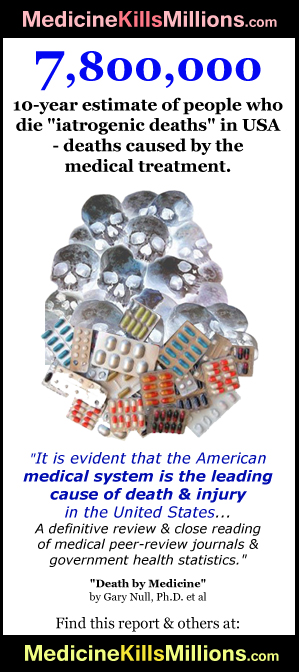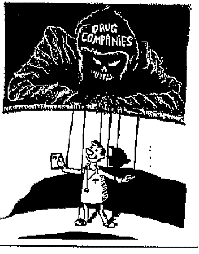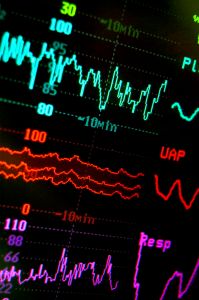![]()
Medical Myths: Surgery and Animal research.
Does training on animals make surgeons better? No. In fact the opposite. Were the advances in surgery due to animal research? No.
As these leading doctors explain:
In regards to learning surgery:
"Surgery can't be learned on animals. Animals are anatomically completely different from man, their reactivity is completely different, their structure and resistance are completely different. In fact, exercises on animals are misleading. The surgeon who works a lot on animals loses the sensibility necessary for operating on humans." Prof. Bruno Fedi, M.D., 1986, Director of the City Hospital of Terni, Italy, anatomist, pathologist, specialist in urology, gynaecology and cancerology. (1)
"Animal experiments for surgical skill have already been shown to be illegal in this country; abroad, we may sum the matter up in the words of Dr.A.Desjardins, President of the Society of Surgeons in Paris: "I have never known a single good operator who has learned anything whatever from experiments on animals". Dr. M. Beddow Bayly, 1940, Member Royal College of Surgeons, Licentiate Royal College of Physicians, U.K. (1)
"Vivisection is barbaric, useless, and a hindrance to scientific progress. I learned how to operate from other surgeons. It's the only way, and every good surgeon knows that." Dr. Werner Hartinger, 1988, surgeon of thirty years, President of German League of Doctors against Vivisection (GLDAV). (1)
"As one who did not dissect in high school, and who now is a veterinarian and trains doctors-to-be, I can unequivocally state that the experience of dissection, or similar exercise, is totally unnecessary for the biologically minded pre-college student... Dissection often is defended by the statement that it fosters an understanding of human anatomy. Using nonhuman animals, however, who have an anatomy different from humans, cannot achieve this end." Veterinarian Nedim C. Buyukmihci, V.M.D., Professor of Ophthalmology, University of California (2)
In regards to the history of surgery:
"It is not true that the great advances in medicine and surgery are due to experiments on animals; they are due to the discovery of anaesthetics and to the use of antiseptics; vivisection had nothing whatever to do with it." Dr. Charles Bell Taylor, M.D., 1895. Fellow Royal College of Surgeons Edinburgh, Fellow of the Medical Society, London, and late President Paris Medical Society. (1)
On anaesthetics, Dr. M. Beddow Bayly states: "As the Report of the Royal Commission on Vivisection (1912) declared: "The discovery of anaesthetics owes nothing to experiments on animals."... Of the respiratory anaesthetics, chloroform was first used by James Simpson in 1847; ether by William Morton in 1846, after experiments upon themselves and friends. Nitrous oxide gas had been suggested by Sir Humphrey Davy as an anaesthetic in 1800, but it was not until 1844 that it was used during the extraction, by a colleague, of a tooth of a dentist named Horace Wells. According to the Medical World, May 12, 1939: "The father of spinal anaesthesia is August Bier, a German doctor who in 1898 injected a 1 per cent solution of cocaine into his own spinal canal in order to observe its effects. The new basal anaesthetics, which are applied by rectal injection, were the direct outcome of clinical observation of the action of avertin, first used to allay the spasms of whooping-cough. Other drugs of the same chemical series followed." Dr. M. Beddow Bayly, 1940, Member Royal College of Surgeons, Licentiate Royal College of Physicians, U.K. (1)
"Like every member of my profession, I was brought up in the belief that almost every important fact in physiology had been obtained by vivisection and that many of our most valued means of saving life and diminishing suffering had resulted from experiments on the lower animals. I now know that nothing of the sort is true concerning the art of surgery: and not only do I not believe that vivisection has helped the surgeon one bit, but I know that it has often led him astray." Prof. Lawson Tait, M.D., 1899, Fellow of the Royal College of Surgeons(F.R.C.S.), Edinburgh & England. Hailed as the most distinguished surgeon of his day, the originator of many of surgery's modern techniques, and recipient of numerous awards for medical excellence. (1)
"My own conviction is that the study of human physiology by way of experimenting on animals is the most grotesque and fantastic error ever committed in the whole range of human intellectual activity." Dr. G.F. Walker, 1933. (1)
"... a survey of what has been attempted of late years in physiology will prove that the opening of living animals has done more to perpetuate error than to confirm the just views taken from the study of anatomy and natural motions." Sir Charles Bell, M.D., 1824, F.R.C.S., discoverer of Bell's Law on motor and sensory nerves. (1)
![]()
Regards the practice of encouraging students to do dissection and vivisection, Dr Robert Mendelsohn comments: "By getting the students used to the shedding of innocent animal blood they can later become tolerant of the shedding of innocent human blood... Why do doctors believe in animal experimentation as firmly as they do? My answer is that it has something do with their education. Because the education of a physician does not train in a scientific medicine, it trains in a religious medicine. So that in the second or third year of medical school, and sometimes even in the first year, when the medical student enters... the laboratory he learns how to do vivisection. He carries out experiments on animals which he knows and his professors know are worthless. Because they are told in advance how the experiment is supposed to turn out. If it doesn't turn out the way it's supposed to, they go back and do the experiments over again using another dog. Now what kind of language do the doctors use and the medical students use in those animal laboratories?... At the end of the experiment they turn to a religious word... they say "we are going to sacrifice the animal!" And my question is: "To whom are they making that sacrifice?" Take my own religion, we Jews gave up animal sacrifices thousands of years ago, but the religion of modern medicine is still deeply into animal sacrifices."
Robert Mendelsohn, M.D., 1986, Head of the Liscensing Board for the State of Illinois, paediatrician & gynaecologist for 30 years, medical columnist & best-selling author, recipient of numerous awards for excellence in medicine. Excerpt is from an interview in the 1980s documentary Hidden Crimes - this short clip is viewable at https://www.youtube.com/watch?v=4GVbh6h3JWY
![]()
Interview with Dr Werner Hartinger (who is quoted above)
Reference:
(1) The above quotes are from the book, "1000 Doctors (& many more) Against Vivisection", (Ed. Hans Ruesch), CIVIS, Switzerland, 1989. 288 pages.You can download this entire book for free right here: "1000 Doctors (& many more) Against Vivisection" (download the full book in PDF for free)
![]()
Similar Articles:
- Why Do Pharmaceutical Drugs Injure & Kill Millions of Humans? Are We the Real "Guinea-pigs"? . . . Medical journals report that pharmaceutical drugs injure millions and kill hundreds of thousands of people each year. This article explains how drug companies: i) use flexible unscientific tests to make their products look "safe"; ii) can then use those flexible tests as a legal defence to avoid punishment.
- A History of Western Medicine: From ancient Greece to modern times ... a summary of how human medicine:
i) advanced due to scientific clinical observations of humans; and
ii) was regularly stalled and led astray for millenia due to misleading results from vivisection ... excerpts from a book by the medical historian Hans Ruesch. - Doctors Against Vivisection on Scientific & Medical Grounds (vivisection = animal research, animal experiments, animals testing on live animals or humans). These doctors explain that vivisection is misleading and very damaging to human medicine. Furthermore, that it is not done for science but for commercial reasons to help insure companies against law suits from humans who are damaged by medical treatment.
![]()
Recommended Organisations:
![]() Physicians Committee
for Responsible Medicine: Group of doctors, physicians and
health practitioners promoting good health through real science. http://www.pcrm.org
Physicians Committee
for Responsible Medicine: Group of doctors, physicians and
health practitioners promoting good health through real science. http://www.pcrm.org
![]() Campaign
Against Fraudulent Medical Research (CAFMR): Archive of articles. Information that the pharmaceutical-chemical industry do not want us to know: medical history, medical fraud, psychiatric abuses,
vaccination damage coverups, behind sudden infant death syndrome (SIDS) etc. http://www.pnc.com.au/~cafmr
Campaign
Against Fraudulent Medical Research (CAFMR): Archive of articles. Information that the pharmaceutical-chemical industry do not want us to know: medical history, medical fraud, psychiatric abuses,
vaccination damage coverups, behind sudden infant death syndrome (SIDS) etc. http://www.pnc.com.au/~cafmr
Return to
home page:
MedicineKillsMillions
to top





